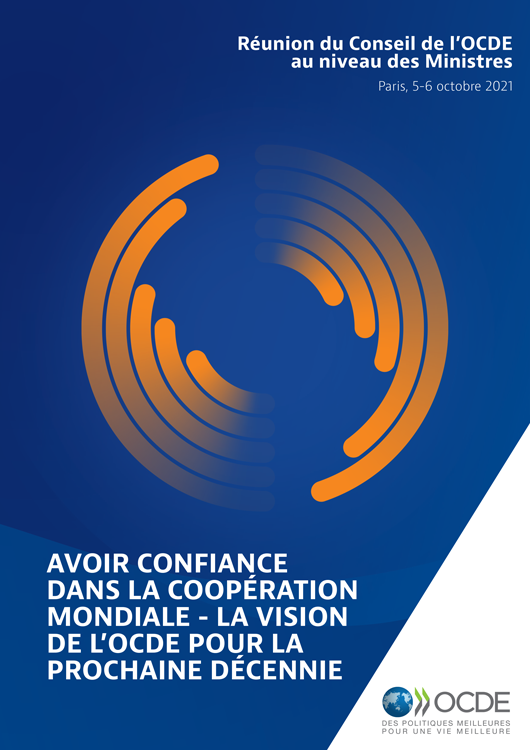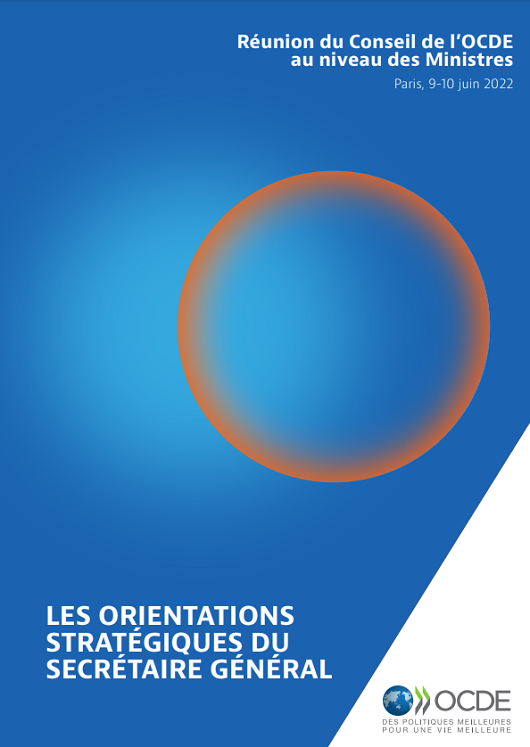Opening Remarks by Angel Gurría
OECD Secretary-General
Paris, France, 15 January 2018
(As prepared for delivery)
Dear Mr. Bill Swing, IOM Director General; Mr. Stefan Schweinfest, Director of the UN Statistics Division; Excellencies; Distinguished Participants; Ladies and Gentlemen:
It is my pleasure to open the inaugural OECD-IOM-UNDESA International Forum on Migration Statistics. We have a lot of ground to cover! The Forum includes over 240 high-level speakers and 700 registered participants from more than 90 countries. A warm welcome to you all, including those following us live on the web.
This event could not be more timely. With 5 million in entries in 2016, immigration to OECD countries is reaching record highs. This is partly a result of the refugee crisis, although other categories of migrants remain much more numerous. Many governments are also facing political challenges associated with this crisis. A key task ahead of us is ensuring the integration of the many new arrivals in our economies and societies. At the same time, OECD economies are increasingly dependent on immigrants to fill labour shortages and for economic growth. Between 2005 and 2015, immigrants represented 65% and 92% of the increase in the labour force in the US and EU, respectively.
Focusing on the people behind the numbers
During our discussions over the next two days, we will be focusing on some very important issues. We will be looking not only at the numbers of people on the move, but crucially, the people behind the numbers: the hopes and aspirations of migrants and their families, those left behind, and those with whom they are reuniting; the hard choices they make; the risks they take, including those to their lives; and the barriers they face in transferring their skills across borders.
The Forum brings together producers, analysts and users of migration statistics to discuss migration measurement issues. We would like to explore with all of you innovative ways to measure population mobility and generate accurate and timely statistics, as well as creating synergies between different actors and perspectives, with representatives from ‘origin’, ‘transit’ and ‘host’ countries of migrants. The Forum will also put policymakers in touch with a wide range of migration data experts, so they can leverage their expertise to inform policy analysis and make optimal policy choices.
I would like to take the opportunity to thank our partners in this endeavour, starting with our co-organisers, IOM and UNDESA, and all of our partner organisations (Eurostat, UNHCR, UNODC, UNECE, ILO and the World Bank) for their inputs and valuable contributions.
Continuously updating our measurement systems
So why is it so important to make progress on migration statistics? Because the world is on the move and the phenomenon of migration itself is constantly evolving. Our measurement systems need to keep up!
First, we must strengthen global progress on migration statistics. The OECD’s flagship International Migration Outlook ─ which is already 41 years old ─ and our regional monitoring system in Asia and Latin America enable us to closely track migration in around 80 countries. But more remains to be done to cover other parts of the world, notably Africa where we are developing a joint project with IOM, and to assess new, emerging forms of mobility.
Second, we need to monitor closely integration outcomes for different groups of migrants. All too often, the integration of migrants and their children in many host countries remains a challenge, depriving them of opportunities and hindering the potential benefits from migration to the host country. The life chances of people remain determined more by where they or their parents were born, rather than their abilities and ambitions. This calls for a permanent and granular monitoring system of integration outcomes.
Our flagship publications, Settling In, on the integration of immigrants and their children, and “How’s Life”, on individual and community well-being, are important contributions in this area, but we need to go further. This means covering a wider range of destination countries and developing new lenses that enable us to look more systematically beyond averages at local communities, at new dimensions of social integration of migrants and their children, or at progress over time and the transmission of disadvantage across generations.
Third, we need to improve the availability, timeliness and relevance of hard facts on migration to build better policies as well as to rebuild public confidence.
The economic crisis and, more recently, the refugee surge in Europe have fuelled anxiety in the public at large about the capacity of international, national and local authorities to manage migration and ensure successful integration in host communities. Even in countries only marginally affected by recent crises, or in those which face continuous unmet labour market needs and adverse demographic conditions, public opinion is often concerned about the economic and social consequence of migration.
In this environment – that some have called the post truth era – there is a clear risk associated with widespread relativism, which has already contributed to reinforcing prejudice against migration and migrants. In many countries, for example, the public debate on migration is increasingly defined by the extremes.
But the evidence clearly shows that well managed migration brings benefits to host countries, to countries of origin, as well as to migrants themselves. OECD work finds that, in most countries, immigrants pay more in taxes and social contributions than they receive in individual benefits. There is therefore an urgent need to regain the political space so that evidence-based policymaking takes centre stage.
Meeting the challenges through international co-operation
Data will help us to better understand the challenges that we face and to tackle them more effectively through close international co-operation. For example, on many occasions the UN General Assembly has called for reliable, disaggregated data and indicators that are nationally relevant and internationally comparable. The New York Declaration for Refugees and Migrants also stresses the need for international co operation to improve migration data through capacity-building, financial support and technical assistance.
In addition, the Global Compact for Safe, Orderly and Regular Migration and the Global Compact on Refugees provide a unique opportunity for the international community to agree on a set of priorities to improve data related to migration. The Compacts should reflect a common vision and understanding of the strengths and weaknesses of existing data systems and suggest roadmaps to address the latter to assist Member States in developing well-managed migration and integration policies. Going forward, the migration statistics agenda ─ at national and international levels ─ should be developed to respond to these challenges.
Ladies and Gentlemen:
Protagoras reportedly said that “Man is the measure of all things”. This can obviously be interpreted as a sort of radical relativism, but it can also remind us of the importance of the human dimension of our measurement systems.
The OECD is fully committed to working with you on continuously updating and upgrading our data and measurement systems. The Forum represents an important step forward in our collective efforts to develop better evidence on the many aspects of migration. This evidence is crucial to help design the policies that will ensure that all people around the world – native-born and migrants alike – can aspire to a better life.
Thank you.
See also
OECD work on migration
OECD Statistics Directorate
OECD Data Portal
Also AvailableEgalement disponible(s)

